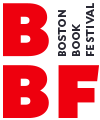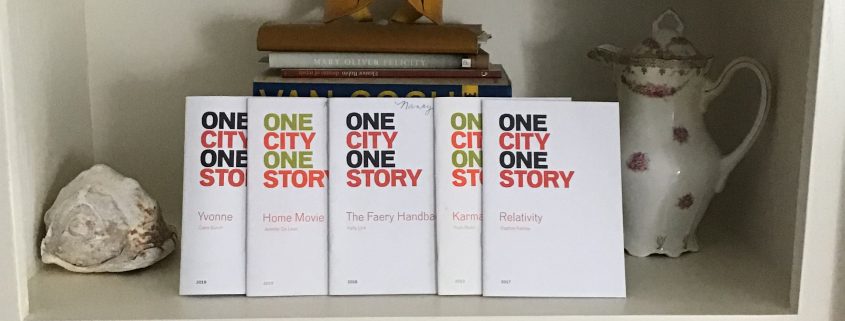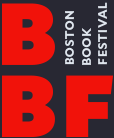The Tenth Anniversary of One City One Story: how a decade has passed in a flash
Photograph by Nancy Connery and Judith Stone.
“It all started around ten years ago—with the appearance of flash mobs.”
I’m sitting at a park in Brookline video conferencing with Judith Stone and Nancy Connery, wondering how the sudden appearance of a large group of people dancing in our current COVID-19 climate would look, and how my interview about this year’s One City One Story (1C1S) initiative of street team volunteers started with a reference to flash mobs.
What a welcome sight a flash mob would be. The idea of a random group of people suddenly bursting into odd, rhythmic movements (regardless of being a little out of sync from only practicing via Zoom), makes me smile. Imagine that wonderful celebration of people coming together, if for nothing else than to express their full-bodied enthusiasm for a few minutes while the world stops and stares.
I can’t help but feel that, at the moment, we are attempting something similar with the tenth annual One City One Story initiative. Each year the Boston Book Festival has chosen a piece of short fiction as a city-wide read, to be shared in classrooms, coffee shops, T stops, and library windows. It is a single story read by a city of thousands, a community built around a shared reading experience, and on the bright side there is no rhythm requirement to join.
In a typical year, the month of September would signal the beginning of the Boston Book Festival season with the distribution of the 1C1S pamphlets to gear up for a weekend long outdoor festival in October; but I, like many in our community, am still wondering when we’ll begin to once again venture outside en masse for things like outdoor festivals.
Executive director Norah Piehl said, “Every year since I started with the BBF in 2011, I’ve put on my One City One Story t-shirt and handed out stories at farmers’ markets, charity bike rides, arts festivals, food festivals, concerts, T stations, and more. Although I’ll miss connecting with Boston’s readers at the same scale this year, I’m really grateful to the BBF fans and volunteers who are helping get the stories out to their own communities.” In a typical year, the Boston Book Festival prints up to 30,000 copies of the winning story in English and Spanish to distribute to area residents, but with the impact of the pandemic lasting through the summer, we haven’t been able to rely on businesses the same way as in past years to help with the distribution of the pamphlets. Grace Talusan, the author whose story “The Book of Life and Death” was selected as this year’s all-city read, suggested a street team of volunteers. In the vibrant writing community of Boston surely there are people who have loved these stories as much as we do and would be willing to help.
Connery and Stone were among the forty or so volunteers who answered the call for help. When I asked them what 1C1S meant to them, Connery responded, “Around 2011, the idea of a book club became too much. We visited the Boston Book Festival and loved the idea of using a short story, like 1C1S, that was easily accessible—this kind of flash fiction. We could give people a week or two to read it and we didn’t have to stick to a regular schedule.”
Stone chimes in, “We noticed people were not serious or careful enough about the books they chose; the titles weren’t always worthwhile. We picked a few of our own short stories, but we knew that with using the 1C1S story, a jury of prospects would have already read it—and even if we didn’t like the story, it would be chosen for its literary merit.”
Hilary Sallick, another volunteer to sign up with our street team of distributors, is a teacher at SCALE, the Somerville Center for Adult Learning Experiences. Sallick used the 2013 1C1S pick “Karma” by Rishi Reddi in a class of hers and was hoping this year’s story would provide a similar teaching opportunity.
She said, “1C1S is an amazing material for students. The writing is engaging, and while it can be a challenging read for the students, it’s rewarding. I remember from ‘Karma’ the theme of immigration and the relationships between the family members. It was beautifully written, quality literature. 1C1S is the real deal, and the booklets are really nice.”
Barbie Savacool, another dedicated 1C1S reader, shared a little about her reading group, Short Fiction on Faith, led by parishioners at Trinity Church in Copley Square, “We meet every other week during the school year, and discuss short stories which are not necessarily overtly religious, but whose themes bring up issues that people of faith can wrestle with. We have been meeting for over ten years, and our material has ranged from classic literature, contemporary fiction, to very recent stories from The New Yorker or Narrative Magazine. We have included the 1C1S stories almost every year, as the material tends to fit our criteria, and we enjoy the local flavor of the stories as well.”
“Distributing each year’s story is a great chance to connect in a very personal way with readers across Boston,” said Piehl, so we knew that despite moving to a virtual festival, we still wanted to give readers the pleasure of having a physical pamphlet. Talusan said, “As a writer, I want readers for my stories, especially those who do not often find themselves reflected in books and TV shows. It’s so thrilling to know that my story will be printed, distributed, and given away for free to anyone who wants it (including in translation and audio).”
This year, Sallick will be teaching her students through remote classes. “The online format of Zoom can be depressing, and it is very, very challenging being thrust into remote learning, but the idea of having and being able to give my students something to hold in their hands is such a gift,” she says. “Having to build a community when we’re not physically in a space is hard,” but Sallick says she has high hopes for “The Book of Life and Death” and the rich ability to read and enter the story with her students.
“This may be a year that everyone hopes to survive and then promptly never think about again,” said Talusan. “There are times when the news of our country is bleak and crushing, but I’m hoping that Marybelle’s story will offer a momentary distraction, a brief respite that reading can bring, and the opportunity to talk to each other and connect about it.”
With the looming election and a focus on social studies, this year’s story, “Sounds like just what we need,” said Sallick. “1C1S is a gift and a resource; I will get the pamphlets into the hands of readers. I promise!” Sallick asserts.
Connery and Stone are also looking forward to sitting down to read and spend the time going through the themes of the story. They host a “Lit Flash” event every year in celebration of 1C1S and have a friend of theirs, Joanne Baker, a 7th and 8th grade English teacher at Boston’s Jewish Community Day School, help teach them what to look for and analyze in short stories. “We’re not Gertrude Stein and Alice B. Toklas,” Stone laughs, but even through our brief interaction, I can see that no matter how you choose to read 1C1S, you will find a way to connect with and enjoy the story.
These volunteers have shown me what the 1C1S project aims to project in such a wonderful way: that full-bodied enthusiasm over helping a piece of flash fiction appear all around the city and last only a brief moment before it dissipates, leaving the Boston community a little more aware and in awe of the crowd of bodies moving around them.
Before I ended the call, Nancy held up all the past stories she’s saved fanned out in her hands, “We have the whole collection!”
I almost got up to dance.
Grace Talusan’s One City One Story virtual event will be held on Crowdcast Friday, October 16, 2020 at 6:00pm.
Additional resources can be found on the 1C1S webpage, including questions for at home book club discussions, a link to submit a piece of writing in response to “The Book of Life and Death,” links to locations where to find the pamphlets around Boston, and links to download the digital pamphlet as well as translations and audio of the story.
Ellie Manning is this year’s One City One Story project manager. She is a second year master’s student at Emerson College in the Publishing and Writing program.




